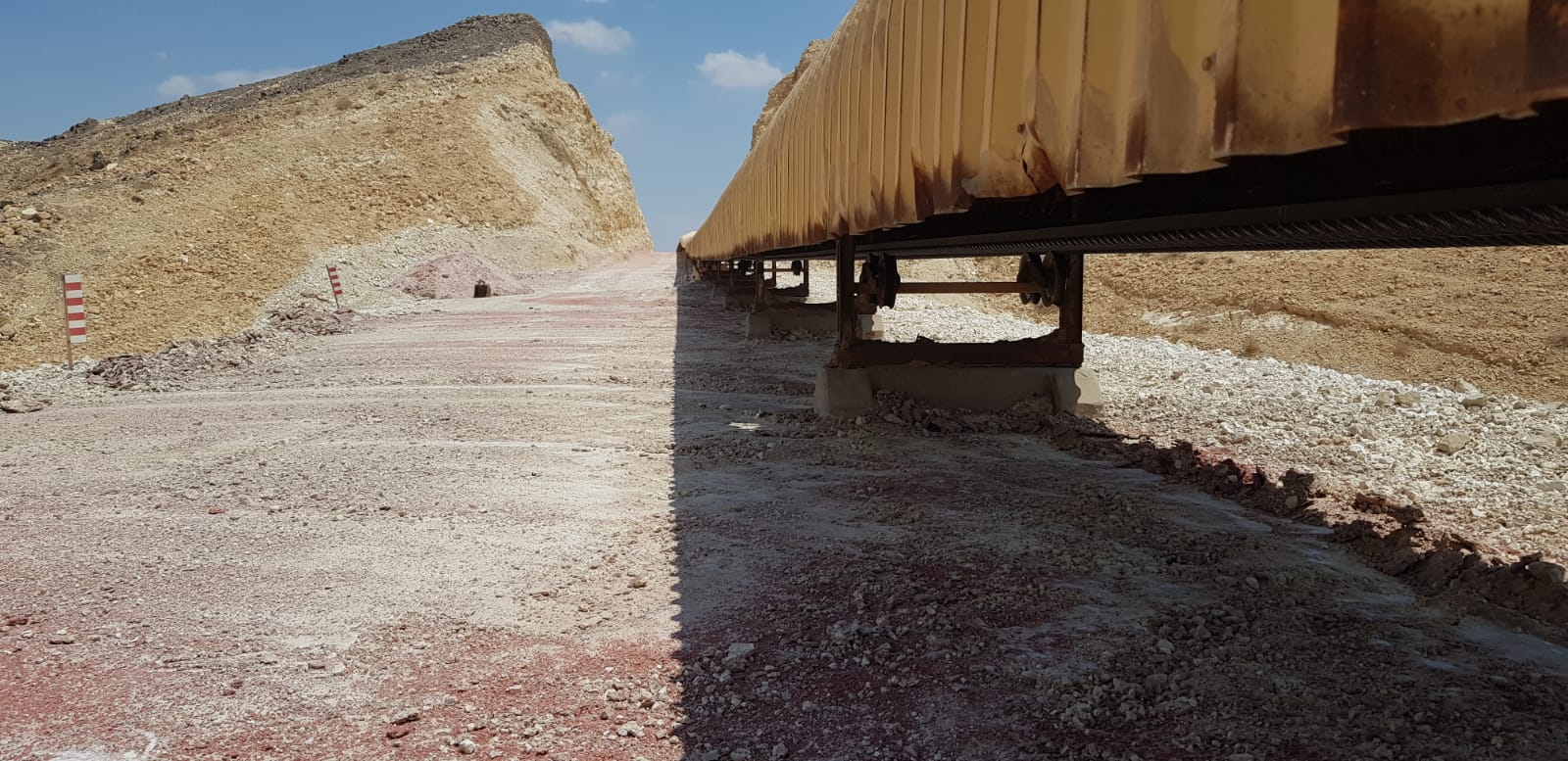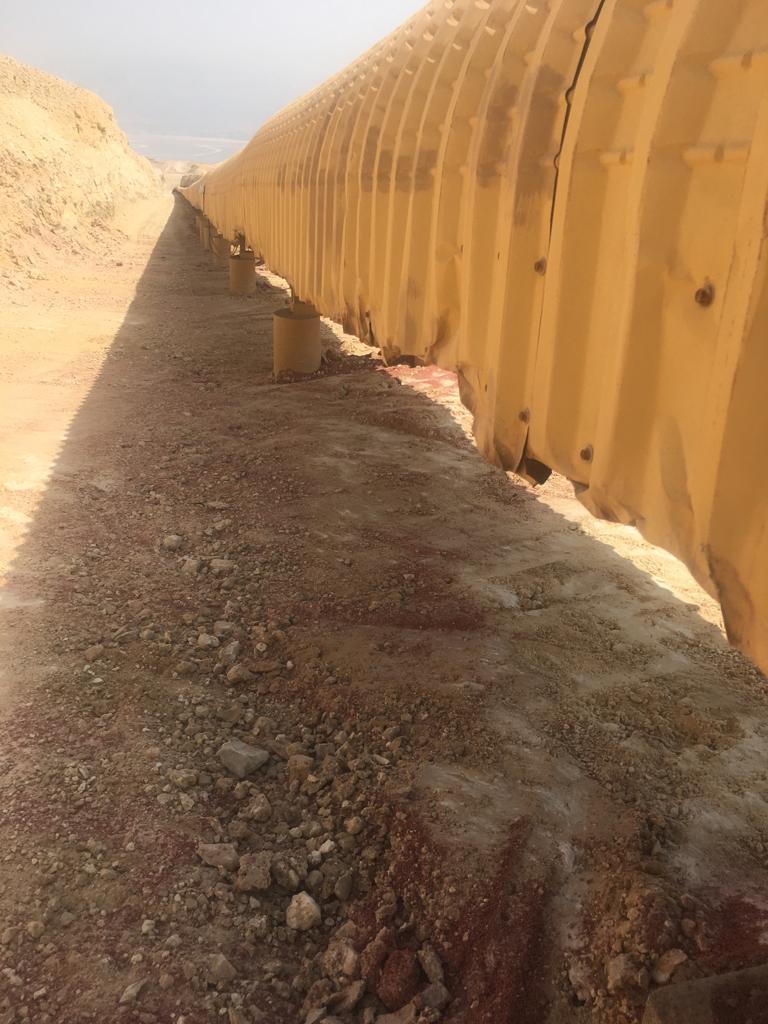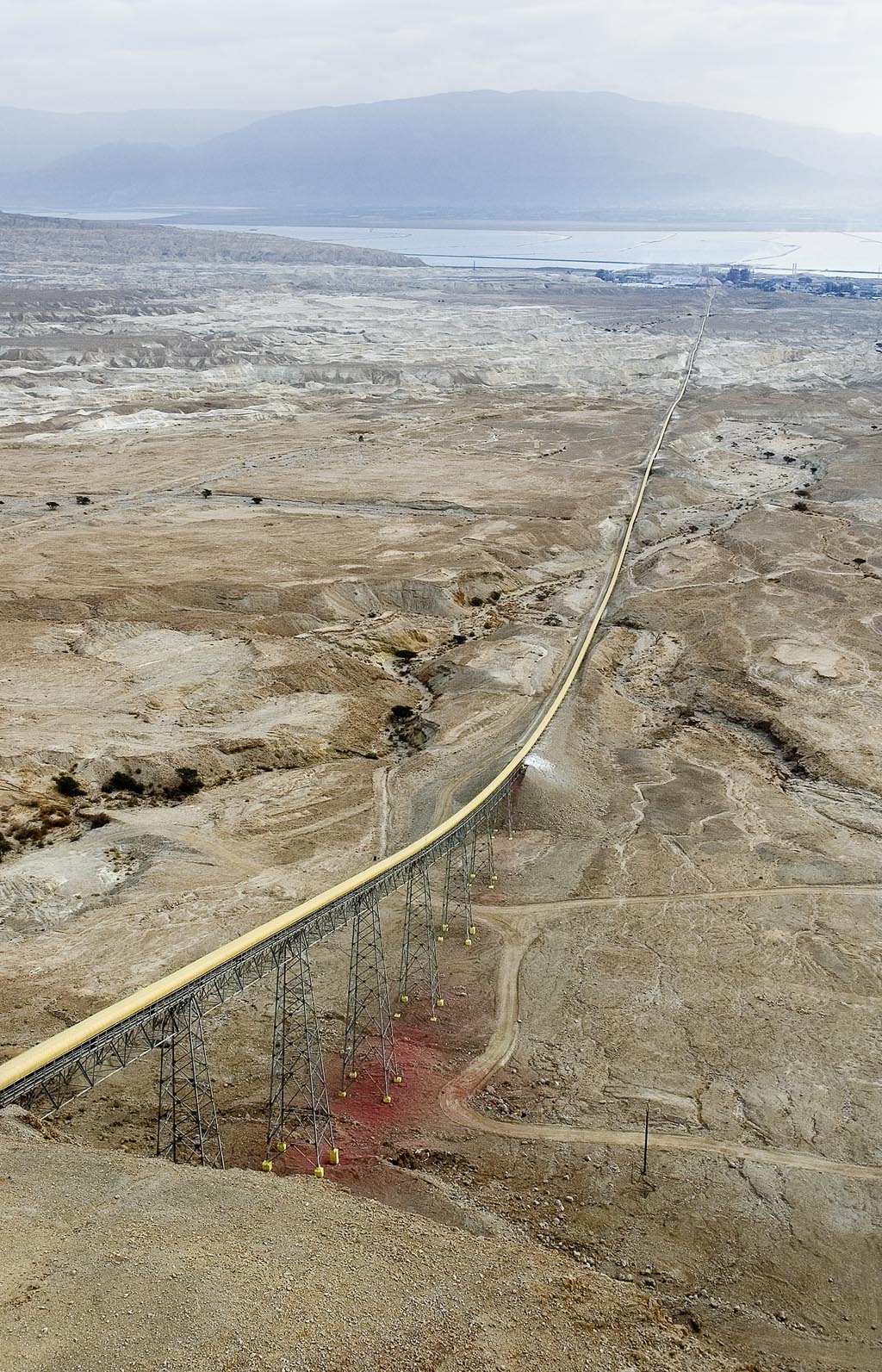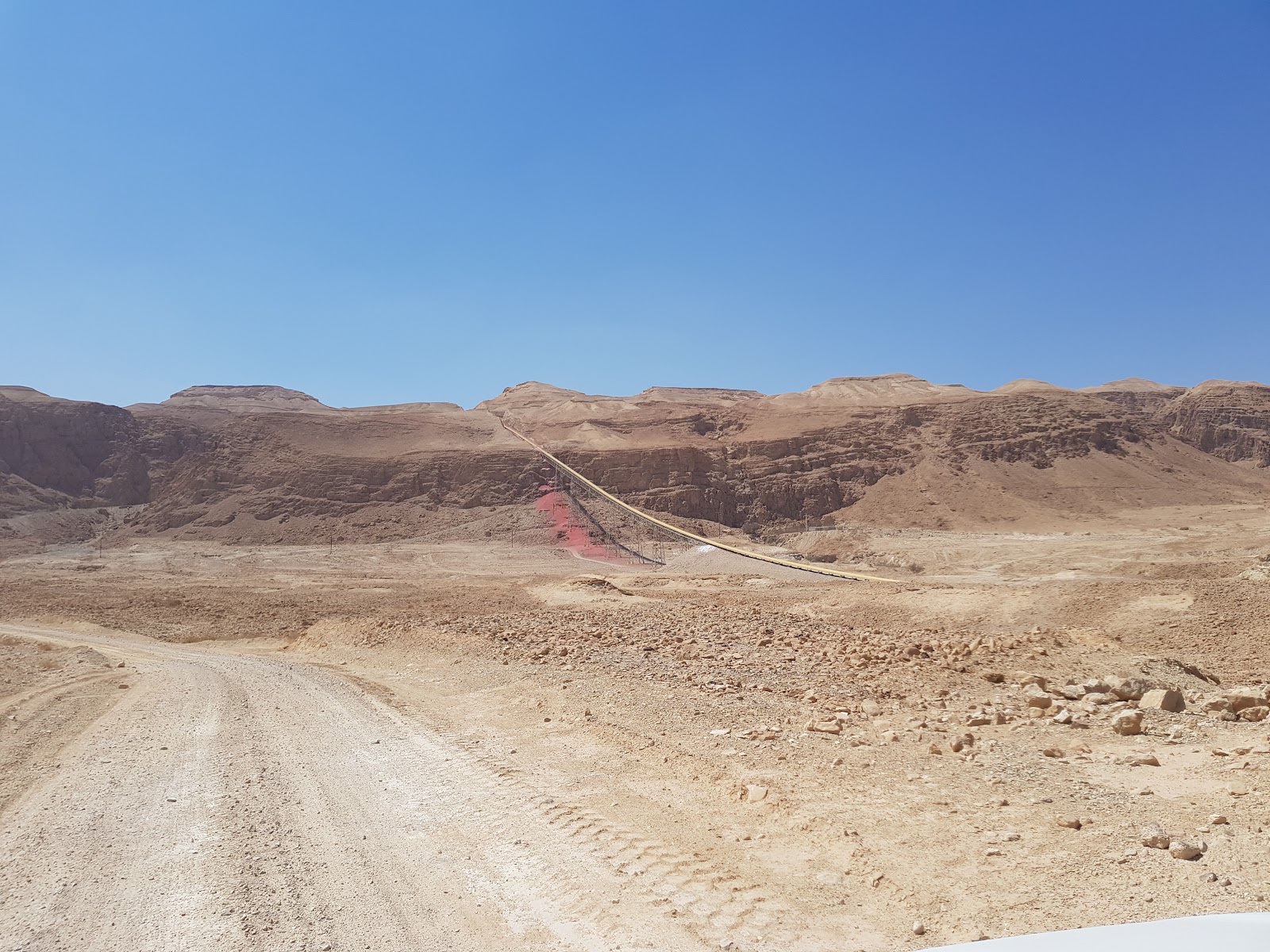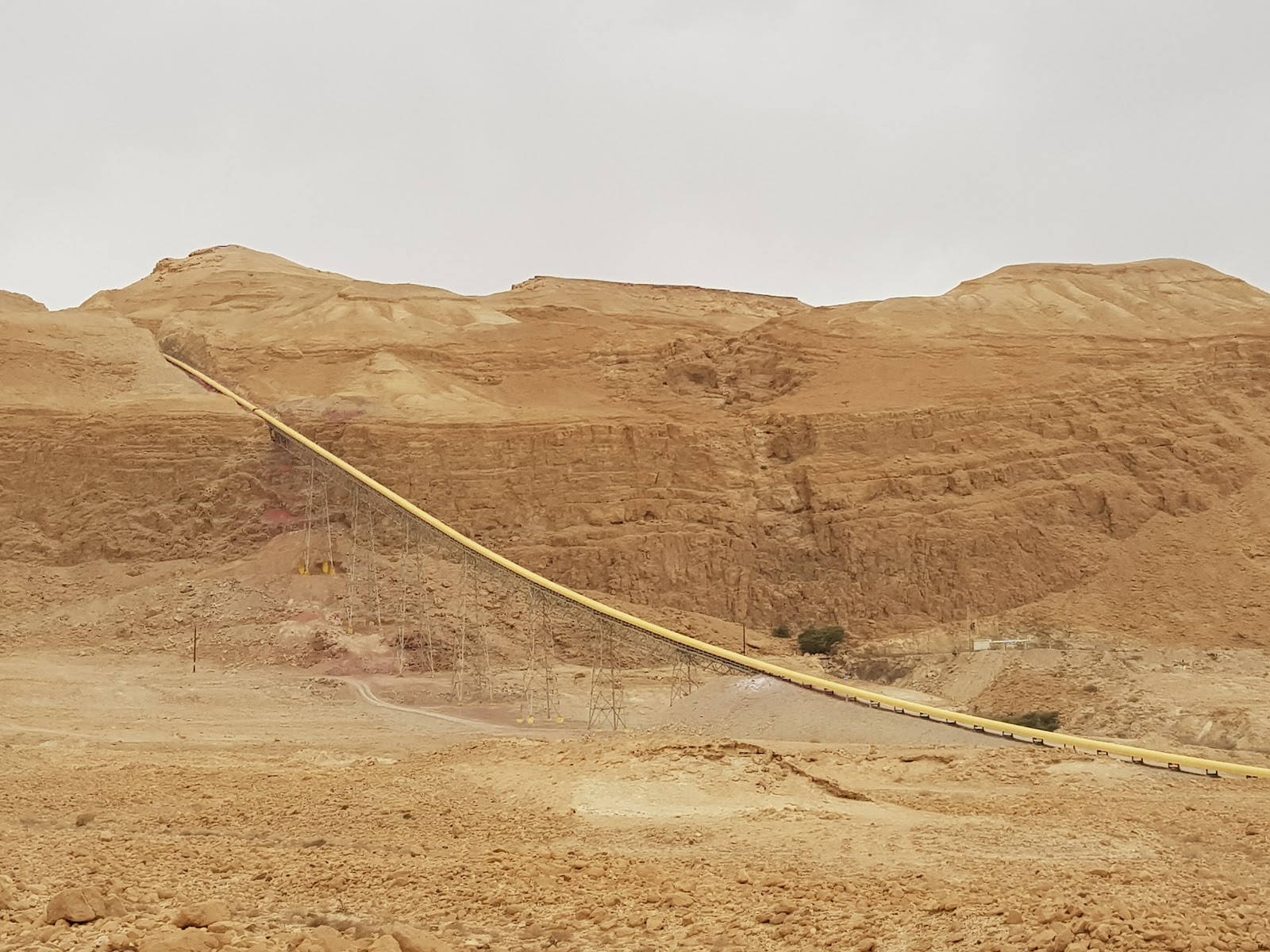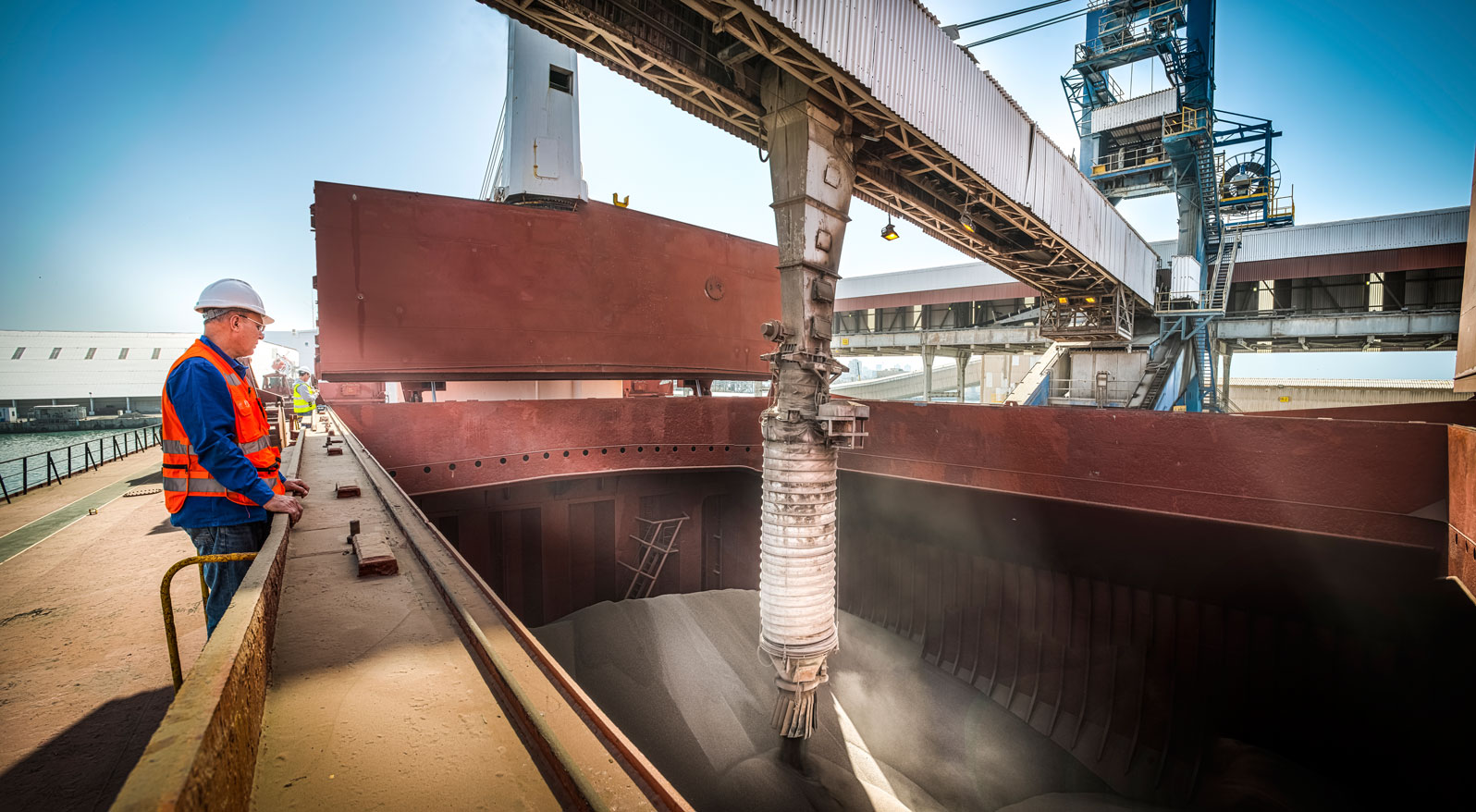Potash Conveyor
ICL Dead Sea produces annually, on average, around 3.7 million tonnes of potash. The conveyor was built in the 1980s and transports an average of 1.4 million tonnes of potash annually. The remainder is transported by trucks to the Port of Eilat. The conveyor replaces road-transport by an equivalent of over 40,000 freight trucks each year.
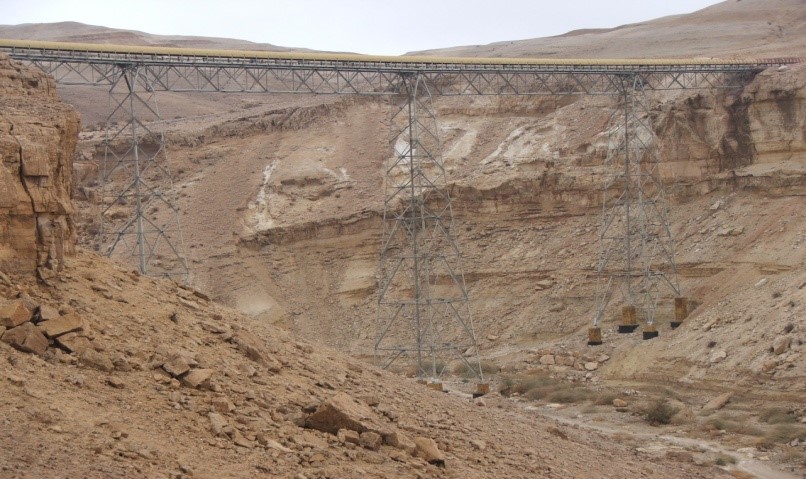
In planning the conveyor, significant efforts were made in order to reduce the environmental impact along its route, with minimal fragmentation of habitats (which occurs each time roads crisscross sensitive natural habitat) in order to allow free movement of wildlife across the region.
As the conveyor’s infrastructure aged over the years, small amounts of potash started falling off the conveyor. ICL Dead Sea is in the midst of a project to renew the conveyor belts. The project’s purpose is to prevent potash from falling off the conveyor to the ground. In the meanwhile, cleaning work is being done along the conveyor route.
Potash Cleanup
Renewing the conveyor belts will reduce potash spillage significantly. The project is expected to be completed in 2019.
